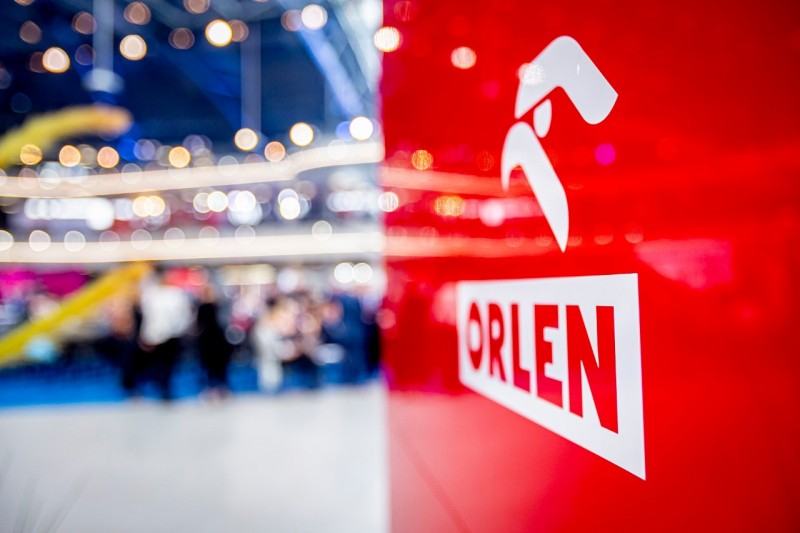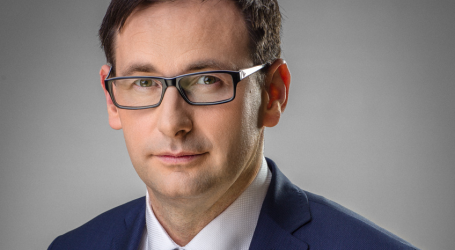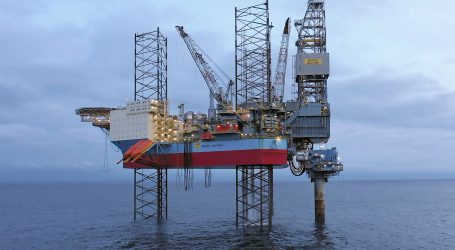ORLEN will appear in Austria
A prime example is the forthcoming acquisition of 266 fuel stations in Austria, operating under the Turmöl brand. Upon the closing of the transaction, ORLEN will rank among the top three fuel networks in Austria, holding a 10% retail market share. Thanks to this dynamic expansion, ORLEN customers will have access to a robust and modern network of more than 3,400 fuel stations across seven Central European countries.
ORLEN’s strengthening presence in Central Europe enabled in part through fuel station acquisitions, has been made possible by effectively leveraging the company’s enhanced capabilities following the merger with Grupa LOTOS and PGNiG. The combined synergies and benefits unleashed by ORLEN’s acquisition of these two companies are projected to exceed PLN 20 billion by 2032, twice the amount originally estimated before the two mergers were finalized.
‘We’ve established a modern corporation that is rapidly solidifying its position in Europe. Originally, our plan was to build an ORLEN network of 3,500 fuel stations in the region by 2030. With this entry into the Austrian market, we’re now on track to achieve our strategic objectives at a significantly accelerated rate, nearing 97%. This rapid progress is possible thanks to the formation of a powerful entity through the merger of ORLEN with Grupa LOTOS and PGNiG. As a consolidated group, we have significantly expanded our capabilities, including financial ones, to achieve the goals set out in our strategy, especially in the retail segment. We’ve recalculated the total synergies resulting from our mergers, and they are twice as high as our initial estimates prior to the merger. Across all business lines, they’re projected at PLN 20 billion. As previously announced, we intend for these funds to support the implementation of new development projects for the merged group over the next decade. Our primary focus is on initiatives that enhance the value of the ORLEN Group and enhance the energy security of both Poland and the region,’ said Daniel Obajtek, CEO and President of the Management Board of ORLEN.
The initial results of the merger are now becoming evident. ORLEN is on the cusp of becoming the owner of 266 modern service stations through the acquisition of 100% of Doppler Energie, the operator of the Austrian network, from the Doppler Group. These stations, currently operating under the Turmöl brand, span all of Austria and rank among the country’s most popular networks, with steady financial performance.
Almost half of the stations set to be acquired are self-service facilities, enabling customers to purchase and pay for fuel directly at the pump. In addition, over 130 stations offer shopping opportunities, whilst approximately 80 provide food service and refreshment facilities. 25 stations are equipped with photovoltaic panels.
The firm soon to be part of ORLEN’s portfolio also operates a network of electric car chargers under the Turmstrom brand, featuring 35 charging points at 29 different locations. The transaction will include the acquisition of Austrocard, a fuel card provider for both private and business customers, which is currently accepted at over 500 locations throughout Austria.
The acquisition of the Austrian company and its fuel station network will be financed with the ORLEN Group’s internally-generated funds. The transaction is set to be concluded pending approval from antitrust authorities, with the closing anticipated in late 2023 or early 2024.
At present, the ORLEN Group has a total of 3,156 stations, 39% of which are located abroad. Following the acquisition of the Turmöl network, this number will rise to 3,422 stations, increasing the proportion of foreign stations in ORLEN’s retail network to 44%.
The ORLEN Group’s progression in the retail segment and other key sectors is a direct consequence of strategic mergers with fuel and energy companies, yielding significant synergies. Recently, ORLEN has completed an analysis to quantify the benefits of the mergers. The most impactful of these benefits is projected to deliver a consistent uplift in EBITDA in the coming years, with the potential to enhance it by as much as PLN 3 billion annually.
Synergies will manifest across various domains. Notably in financial management, there is potential for enhanced capabilities to secure financing in foreign currencies within global markets. In logistics, operational cost efficiencies are expected for both transport providers and rail tank car lessees, facilitated by collective planning and streamlined management of fuel distribution.
The comprehensive PMI (Post Merger Integration) programme, which is already underway, will facilitate the full delivery of the stated goals. Interwoven with the ORLEN Group’s strategy through 2030, the programme aims to seamlessly transform and integrate all business segments within the company. It has been carefully designed to align with global best practices by professionals from PwC, supported by international industry experts.
‘In the coming years, the ORLEN Group will execute over 160 integration and transformation projects, with the potential to yield benefits in excess of PLN 20 billion. These initiatives will encompass all segments of the company’s business. Successful implementation of these projects will enable various advancements, including the application of cutting-edge technologies, enhancement of safety and security, organizational restructuring, resource optimization, innovation rollouts, efficiency improvements, and the recruitment of skilled personnel. In certain areas such as petrochemistry, there is a strong likelihood of even greater benefits being achieved, particularly if development investments are pursued,’ said Wojciech Słowiński, partner at Strategy& within the PwC Group.
These activities have already demonstrated significant impacts that can be observed today. By the end of the first quarter of this year, notable synergies were achieved, particularly in oil and gas trading, logistics, and supply chain management, amounting to nearly PLN 400 million. The management of the ORLEN Group was further optimized through the consolidation of accounting and HR functions, as well as the integration of service subsidiaries such as support and project companies. Additionally, the scope of operations of shared services centres was expanded, contributing to improved efficiency and effectiveness within the organization
rel. Orlen




